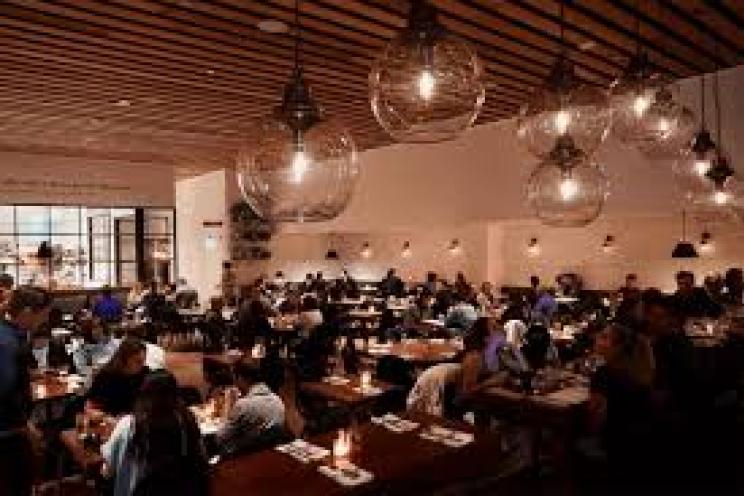
How to conduct an effective competitive analysis for your restaurant?
As a restaurateur, you probably learn about opening new restaurants almost on a monthly basis if we don’t want to say even more frequently.
You might be planning for opening a new restaurant or restructuring your restaurant to increase your footfall and your revenues and you might be asking yourself:
Can I survive among all the competitors, especially the direct ones?
In a highly competitive sector like hospitality, you need to perform a competitive analysis to identify the internal and external factors that impact your business, affect your growth, and contribute to your success.
What is restaurant competitive analysis?
A competitive analysis aims to evaluate how well is your business doing compared to the competition so you can identify your competitive advantage through a series of SWOT analysis.
It enables you to improve your business in these 4 pillars:
- Identify your strengths and weaknesses
- Understand the dynamics and the scenery of your market place including competitors
- Identify and predict market demand and supply
- Plan your growth strategy
First of all, let’s start by categorizing your competitors.
What is your restaurant competitor?
Your restaurant competitor is any other restaurant that works in the same sector or industry and sells to the same target market.
Now we have to differentiate between 2 different types of competitors:
Direct competitors: the restaurants that offer very similar food and type of service to customers. Your competitors offer the same cuisine and the same concept and as a result, attract similar customers.
KFC and Chick-Fil-A are direct competitors, Pizza Hut and Domino’s Pizza, and finally McDonald’s, Wendy’s, and Burger King are direct competitors as well who offer the same food with the same type of service and concept which is fast food service.
Pepsi and Coca-Cola are other examples of direct competition.
Indirect competitors: They usually offer different food or services but they serve the same target market aiming to satisfy a similar need.
Pizza Hut and McDonald’s are examples of indirect competition that serves the same target market looking for fast food in a quick service restaurant although the food offered is totally different.
Tips to create and conduct a successful competitive analysis
Start by compiling a list of your direct and indirect competitors
Look in the near neighborhoods around your locations for direct and indirect competitors.
Evaluate everything related to them and start by the following:
- Hours of operations
- Mission statement
- Concept
- Restaurant style
- Food
Evaluate your competitor’s online presence
Look at your competitor's websites, social media platforms, and their online services.
What do you need to look for?
Look for the feedback they receive from their customers, the language they use when interacting with online users, the impact of this interaction, and everything related to their online presence.
- Do they try to reply to negative and positive feedback?
- Do they offer frequent promotions?
- Do they have online specials?
- What type of information are they posting?
- How does their online presence compare to yours?
Evaluate their menu offerings and prices
While price is important, it is not a deal breaker. You might have a cheaper price but they might be offering real meat in their burgers or vice versa. The difference in prices will be noticed in case you are not differentiating yourself in terms of the quality of food served or customer service offered.
Find out about their specials and promotional offerings, their bestseller item, and their competitive advantage.
Menu engineering feature will equip you with all the needed tools to design your menu according to profitability and popularity factors to generate maximum profits.
Check your competitors’ use of technology
It’s very important to look at the technological side of your competitors. Which POS software do they use? What are the advanced features this system offers?
Technology offers an important competitive advantage in terms of delivering fast services, enhancing your operations, and improving your performance in addition to reporting and analysis that enable you to make insightful decisions that will sustain your business and support its growth.
Observe your competitors’ customers
You can conduct field visits to their restaurant during busy shifts so you can evaluate their customers’ profiles and compare them to yours.
You can also follow their customers’ social media engagement so you can find ways to identify what you need to do to get them to your restaurants or at least find a way to attract different demographics.
Conduct a SWOT analysis in all the above steps
In each analysis, perform a SWOT analysis and identify:
- Strengths: In each point look for what your competitors are doing right.
- Weaknesses: After learning about your competitors’ strengths, you can identify the internal barriers to gaining the same strengths so you can improve your operations
- Opportunities: if you have a certain external opportunity that you can grasp to create a competitive advantage. You can benefit from a new food trend such as health conscious food trend.
- Threats: What are the external threats that are affecting you? Is it free delivery offered by your competitors? Is it a new item with a secret blend? Is it a stronger online presence?
Conducting a competitive analysis is crucial for you to position yourself in the market and identify your opportunities for growth.





